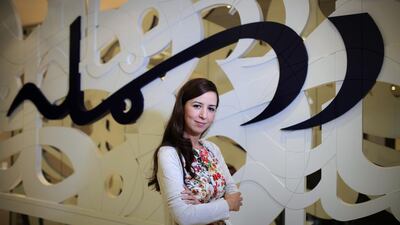Salwa Jorho, senior equity analyst at Rasmala Investment Bank, says the re-pricing of risk in GCC markets has played a major role in moving the markets up during the past few years.
What is the asset class and geography that you are focused on?
I am part of the equity team and we are actively managing equity portfolios and funds in the Mena markets with an emphasis on the GCC region. Our funds have performed well in both up and down markets because of our emphasis on fundamental analysis and quantitative risk management. Because of the current significant volatility in both the UAE and Qatari markets, we have recently increased our allocation to Saudi Arabia.
What is your outlook for the coming months? What should investors look for?
We remain positive and expect the continuation of robust year-to-date performance for the end of 2014 mainly to be driven by the petrochemicals, retail and banking sectors. For the petrochemicals, along with a healthy dividend yield, we believe that they provide a unique investment opportunity for foreign investors, especially after the opening up of the Saudi market. The banking sector, on the other hand, offers reasonable valuations – mainly in the UAE and Saudi Arabia, with a few exceptions in the Qatari stock market.
The retail sector in Saudi Arabia should essentially outperform after a few signs of sluggish growth, which was largely because of the impact of labour reforms.
We also expect the telecoms sector to attract some inflow in the coming months, given its defensive nature and discounted valuations compared to the rest of the market.
We believe that more IPOs in the region, such as the Emaar Malls Group in the UAE and Al Maha Ceramics in Oman, would provide some direction to the markets over the medium term. In Saudi Arabia, we expect the market to remain strong after the news of the Saudi stock exchange finally opening up to foreign investors.
What are the main risks, either upside or downside, to the outlook?
We believe that there are many factors that will play a deciding role in determining the shape of our strategy and the robustness of our outlook. Alongside the positive developments that were mentioned earlier, we think that one of the major downside risks to the outlook is linked to the political landscape of this region and the widespread instability. The situation in Iraq and Syria is a serious threat to the whole region. Subsequently, a rise in volatility should persist across Mena equity markets.
With their rallies, we also believe that GCC markets look relatively expensive compared to those in other emerging markets and developed markets. Consequently, those rich valuations might trigger a healthy correction, which is necessary for continuing gains in the Saudi and UAE markets.
The re-pricing of risk in GCC markets has played a major role in moving the markets up during the past few years, as the GCC countries appeared to have overcome the challenges of the Arab Spring and the turmoil in neighbouring countries positioned them as a safe haven. However, we do not think that it will be the case in the medium and long term, as we expect the market to perform along with earnings expectations. Therefore, stock-picking is becoming more and more challenging.
What was the best investment you were ever involved in?
Some successful investments include GISS, Al Hokair and Jarir. In the first two cases, we have registered a return of 321 per cent and 198 per cent respectively, while in the case of Jarir our price return is close to 145 per cent. The first company belongs to the oil and gas services sector, while the other two operate in the retail sector.
What was the worst?
Last year we increased our allocation to Kuwait slightly, as a response to the anticipated improvement in the economic and political scheme. Unfortunately, we did not see any material change – only stagnant projects and more delays in public investment and economic reforms. As investor confidence didn’t improve, we decided to decrease our exposure to Kuwait while remaining exposed to only the less-vulnerable and more stable picks.
mkassem@thenational.ae
Follow The National's Business section on Twitter

